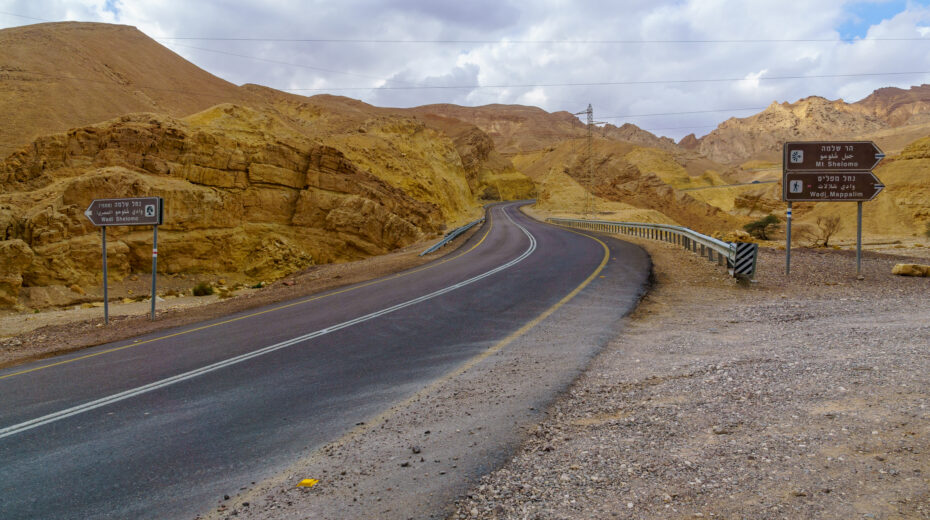Notice the similarity between the journey in the book of Exodus and the journey in the book of Numbers.
In both journeys the Israelites are a tough people often complaining about food, drink etc. In the book of Exodus they commit the sin of the golden calf. And in the book of Numbers they commit the sin of the spies – bringing a bad report.
In both of these instances, God threatens to destroy the people and start over with Moses. And both times Moses begs and convinces God to forgive the people. You can easily feel that one book repeats the other book.
But the big difference between them is:
The book of Exodus is a book dealing with the journey from Egypt. Whereas the book of Numbers deals with a journey to the Land of Israel. The Israelites in the book of Numbers look forward and not back. They no longer think about the dangers of escaping from Egypt and leaving the difficult but familiar. In the book of Numbers the Israelites are already thinking about the future and the possible dangers in the new destination.
We expect to see the Israelites already relaxed at this stage. They have already passed the great dangers, and they have experienced great miracles of redemption and salvation. They already understand that God is with them and that his power is greater than all the gods. And yet the opposite happens. The mood of the people is more gloomy and grumpy than in the book of Exodus. Even Moshe reaches the point of despair because of the people.
Here, as in all the stories of the Torah, there is a message worth understanding and learning from it insights for our contemporary lives. The story teaches us that the journey to a certain place is always more difficult than the journey from a certain place. That is, the journey to the promised land is more difficult than the journey from Egypt to the desert.
The main reason for this is biological. A tendency to react sharply to dangers is hardwired into our genes. In times of danger, our deepest instincts awaken and we enter a state of either fight or flight. And so it was on the journey out of Egypt.
But in the journey to the Land of Israel, like in any journey into the unknown, we are required to acquire new skills and develop new powers. We are required to use the power of imagination to help us describe a future that has not yet existed. and exercise strong will power to realize and succeed in the journey.
The journey “to” is a step into the unknown. The difference, for example, between Terah (the father of Avraham), and his son Avraham is that Terah LEFT the land of Haran and set out in the direction of Canaan. However, he came only as far as Haran and settled there. In other words, he had the power to get OUT of Ur Kasdim, but he could not complete the mission into the unknown and reach Canaan. He got stuck.
Avraham, on the other hand, was able to use the necessary skills and thus complete the journey from… and also to…
Another very important aspect in this difficult journey into the unknown, is to know from the beginning where we are headed, and to set a goal in front of our eyes from the first moment. Dream about what you want to achieve, do, about what you want to be. Dreaming is the first thing that needs to be done to find out and specify the destination. Dreams are the opening to thinking about the future, and they indicate the direction. Take for example, Jacob when he ran away from his brother and started his journey into the unknown. It started with a dream, and it was there in the dream that his destiny became clear to him. And the clearer and more precise the calling was to him, the more it allowed him to go through the journey until he completed his vocation.
Our real challenge then is to know where God wants us to go. What task is he asking us to fulfill? It will likely be in line with our giftings. Once we clarify for ourselves the answer to where we are going and why, then there is the possibility of meeting the challenges that this journey will bring, and completing the journey.
The Israelites made endless mistakes on their journey to the Land of Israel. They are called a stiff necked people, because instead of looking forward, they constantly looked back, behind the back of their neck. And the result, as we know, was that almost an entire generation had the same fate as Terah. They knew how to leave, but not how to arrive. They experienced the exodus from Egypt, but missed the entry into the promised land.
Knowing our destination then, is wisdom that helps us go through the journey and succeed in it.















That’s a good point. Abraham looked for a city whose builder was God, (Heb 11:10) and he set his course towards it. Nimrod and the world’s rulers like to build a city for a self-designed god. This is true for all sinners. God has already created the new heavens and the new earth wherein dwells righteousness. (2 Pet 3:13) Messiah is the narrow entrance to that city. (Matt 7:14) Our life here below is our training for the eternity before us.
Excellent article! Now you have your eyes set upon meeting the Messiah as He sits on the throne in Jerusalem. What a calling that is! What is your part in that? I don’t have a clue. But I know that if you ask Yeshua, He’ll tell you. We worship you, Lord!